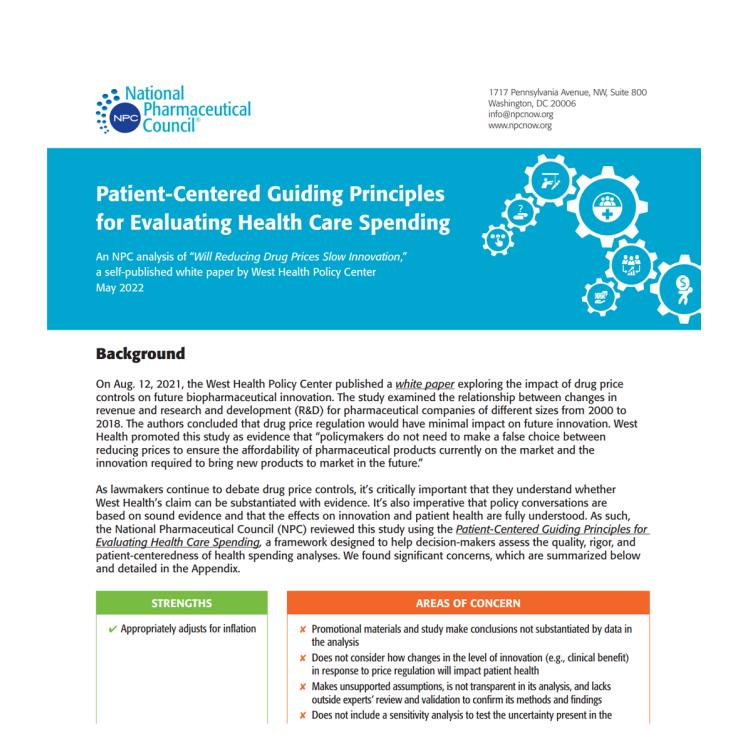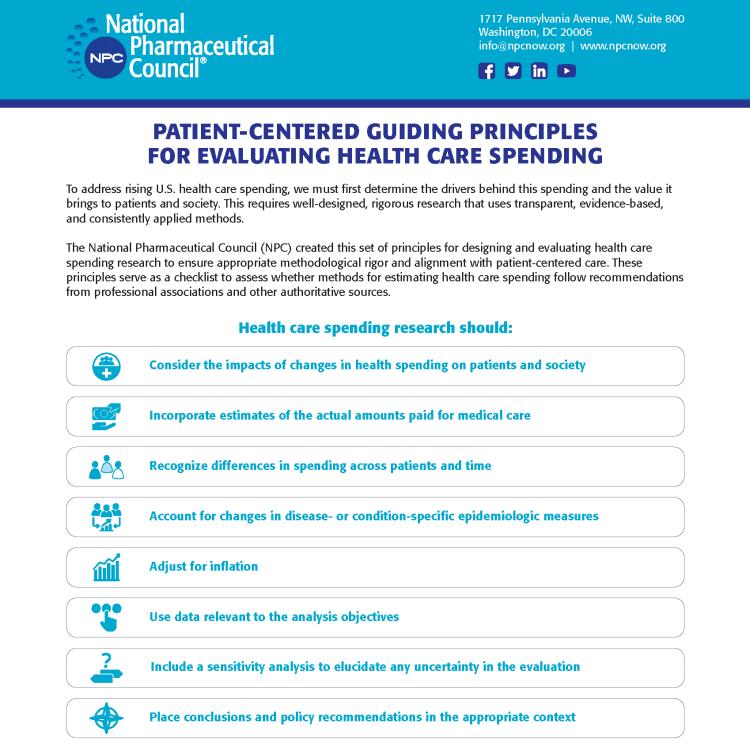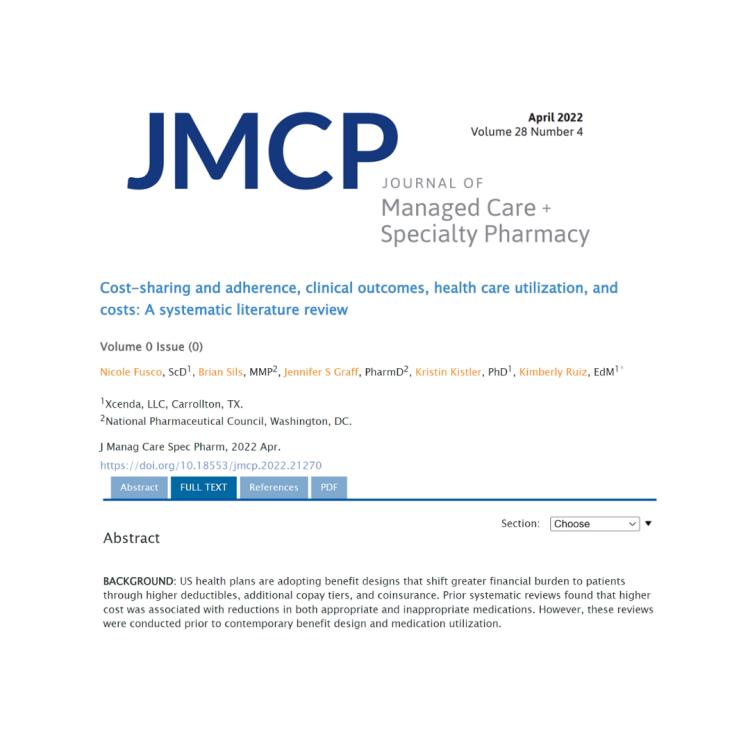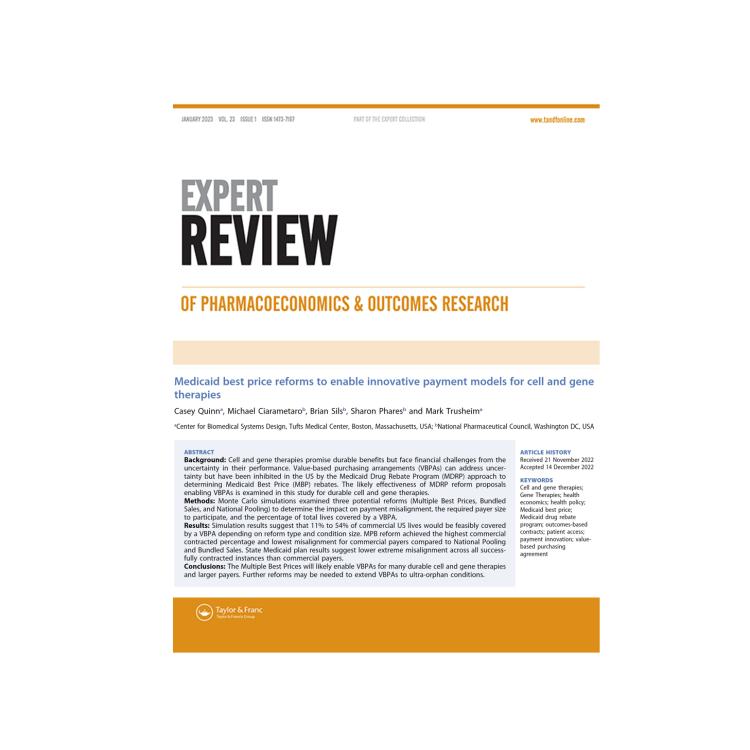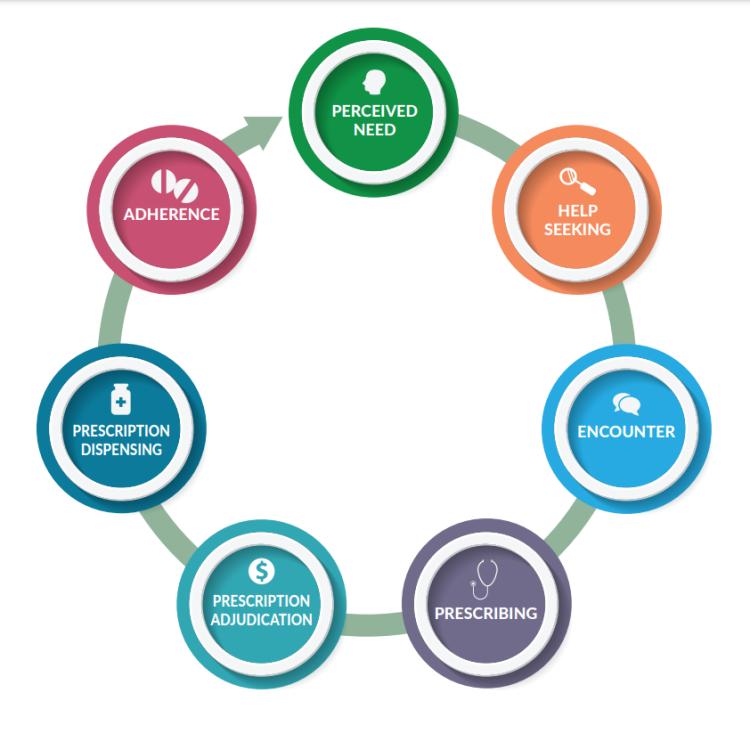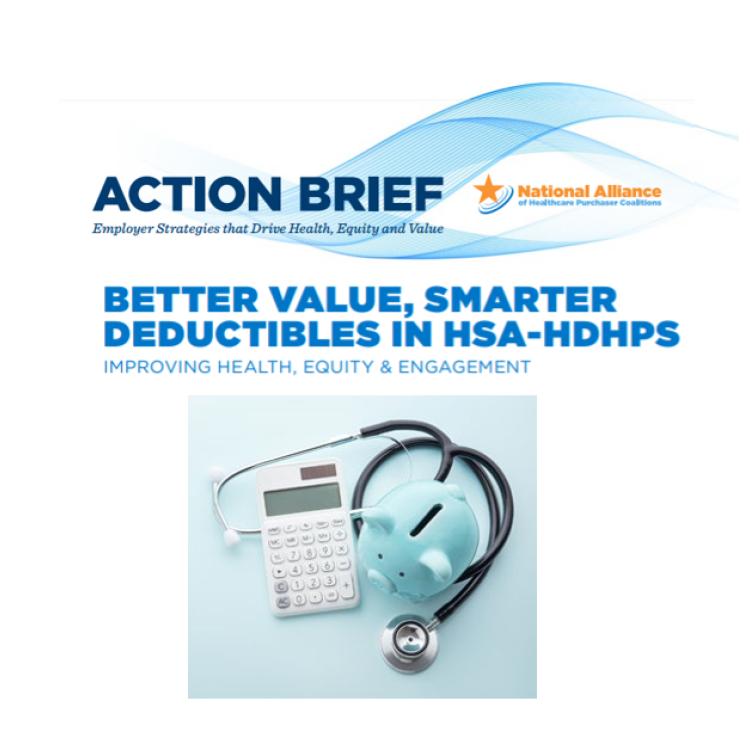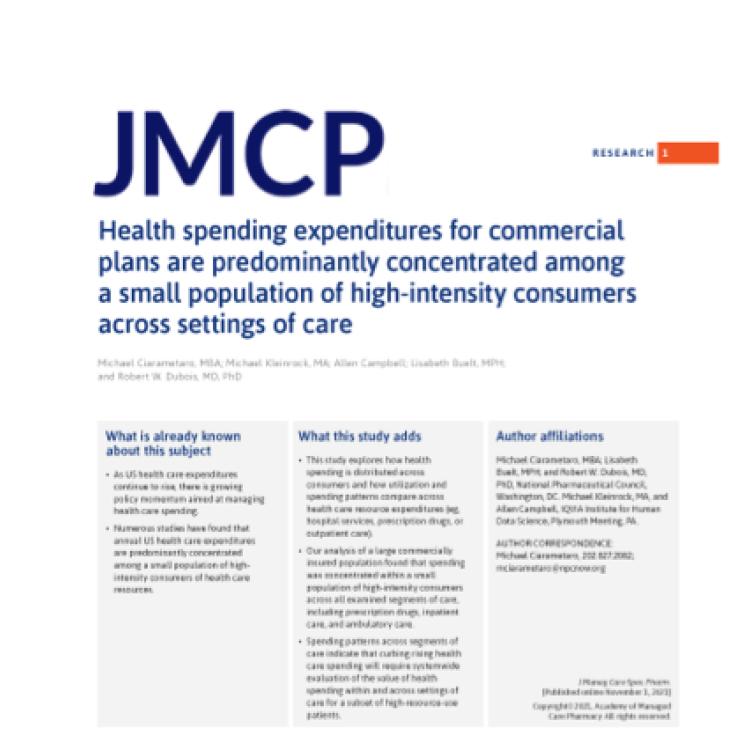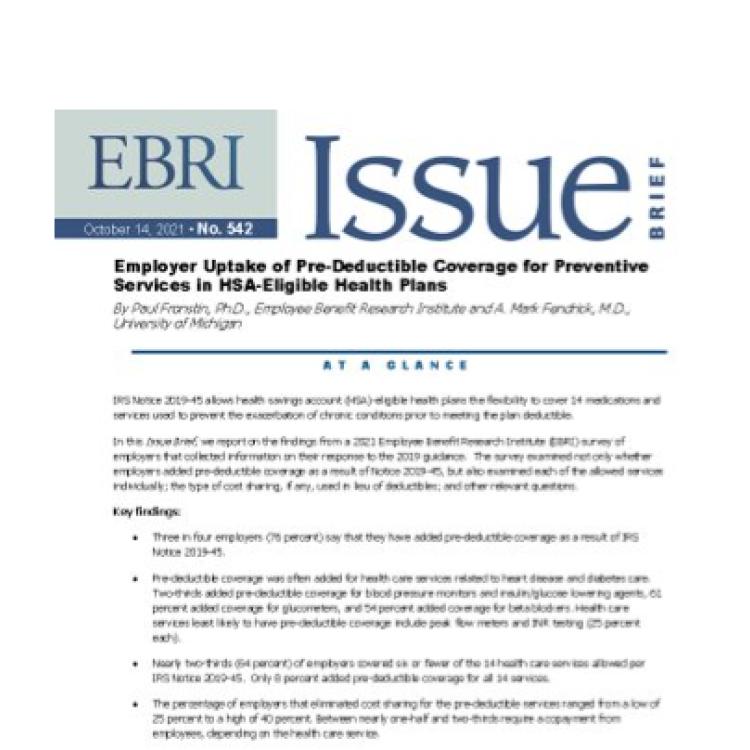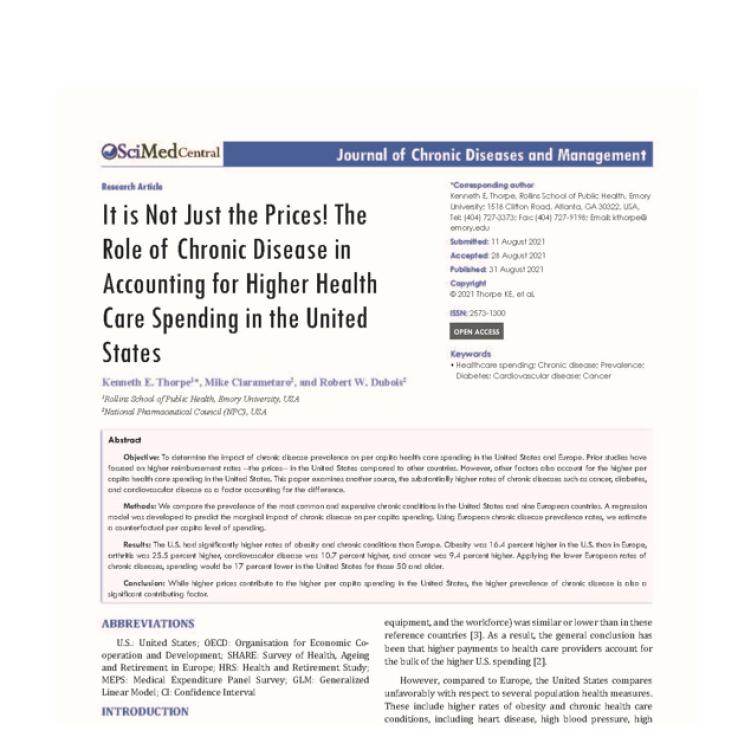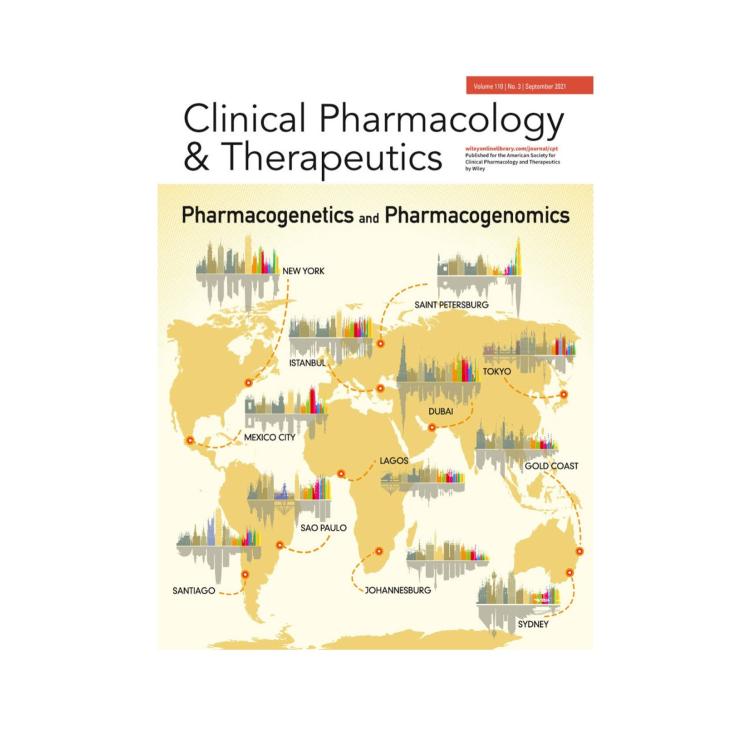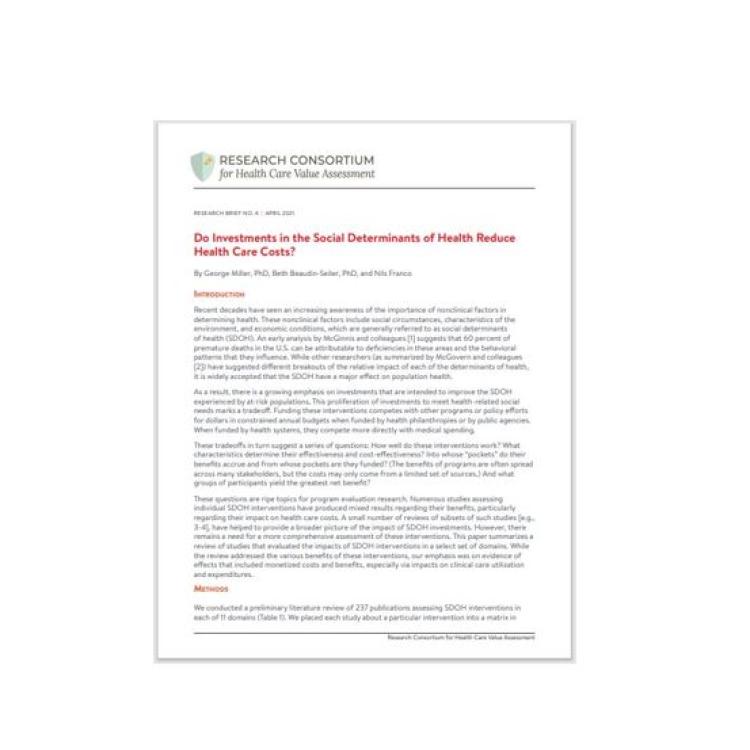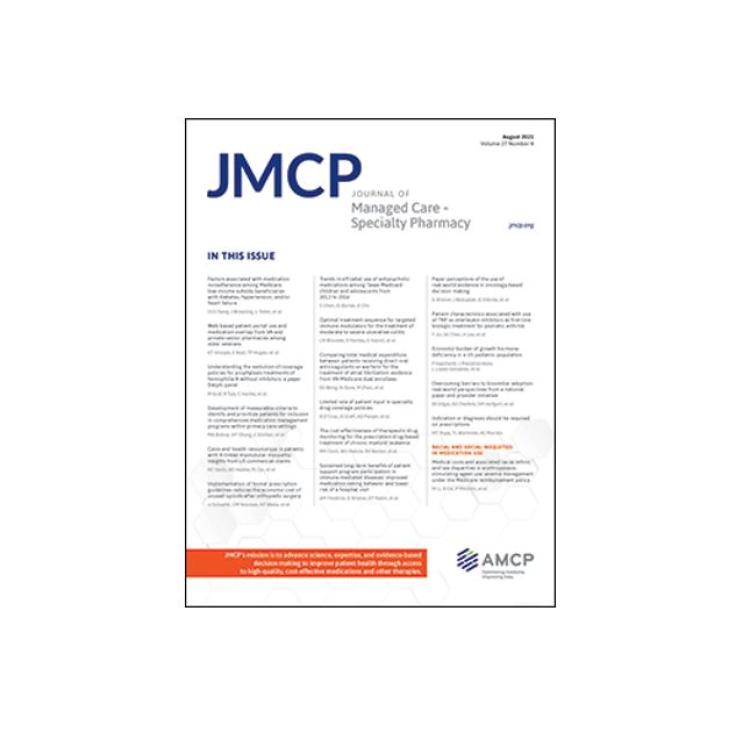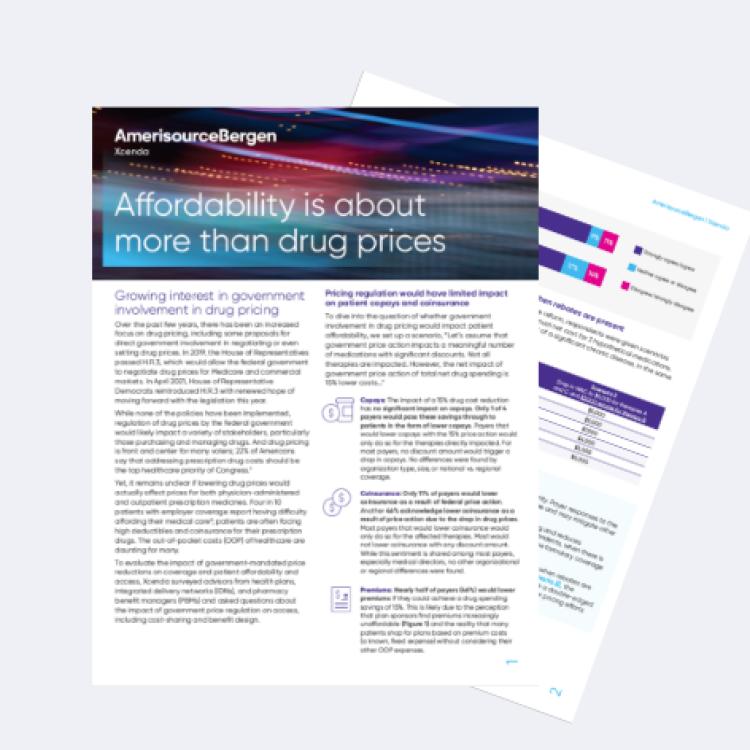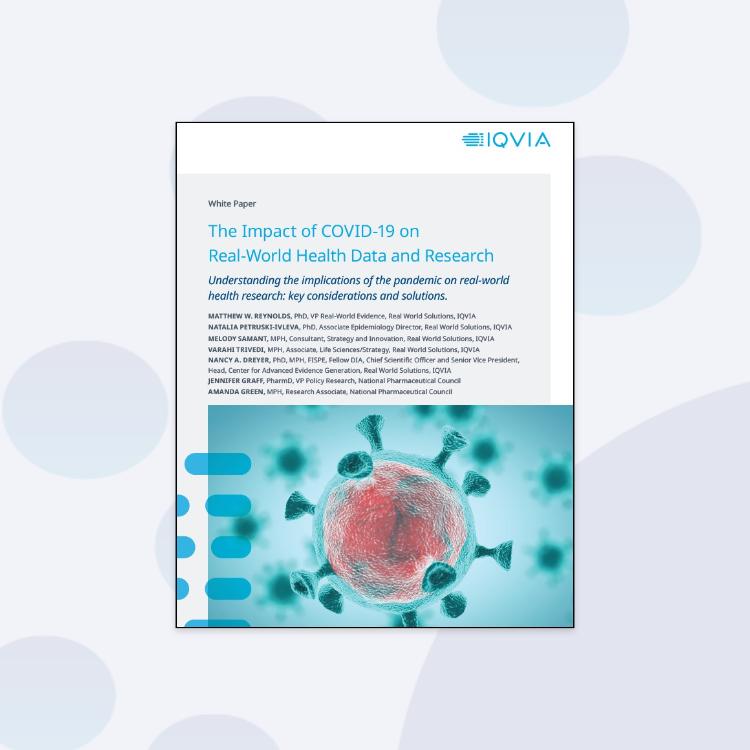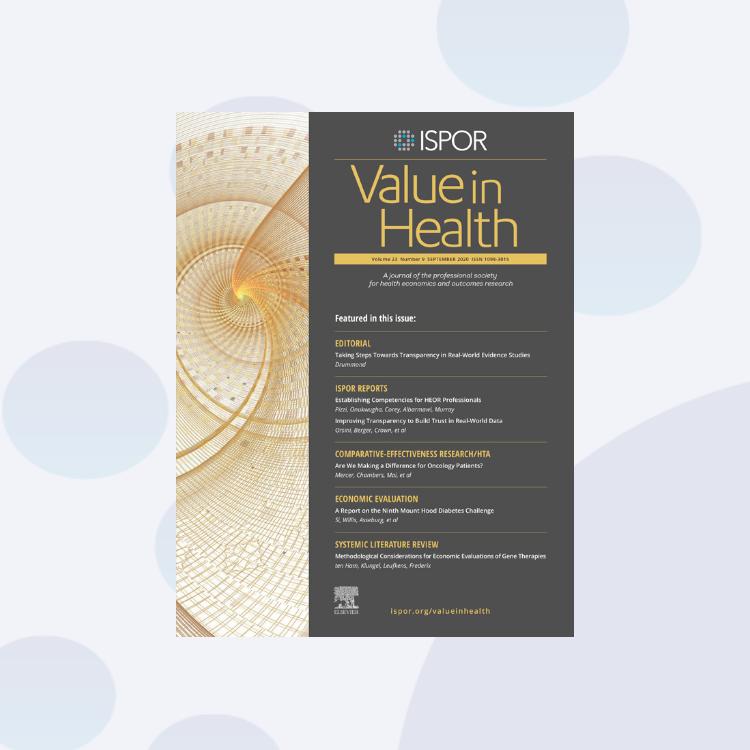Resources
The National Pharmaceutical Council (NPC) is a health policy research organization dedicated to the advancement of good evidence and science, and to fostering an environment in the United States that supports medical innovation.
Filter by:
Topic
Topic
- Accountable Care Organizations
- Alternative Payment Models
- Biopharmaceutical Innovation
- Clinical Pathways
- Elements of Value
- Evidence for Decision Making
- Formulary/Benefit Design
- Good Practices for Evidence
- Health Care Quality Measures
- Health Spending
- Health Spend Management
- High-Deductible Health Plans
- Impact on Outcome & Spending
- Individual Treatment Effects & Personalized Access
- IRA Implementation
- Pandemic Response
- Patient Cost Sharing
- Paying for Cures
- Pharmacy Benefit Managers (PBMs)
- Policy & Regulatory Barriers
- Real-World Data
- Real-World Evidence
- Regulatory Barriers & Challenges
- Understanding Health Spending
- Utilization Management & Step Therapy
- Value-Based Contracts
- Value-Based Insurance Design
- Value Assessment
- Value Assessment Frameworks
- Value Assessment Methods
Resource Type
Audience
Display Only
Showing 266 Results
Case Study: Using Health Care Spending Guiding Principles to Evaluate "Will Reducing Drug Prices Slow Innovation"
NPC evaluated a study of drug pricing through the lens of its Health Care Spending Guiding Principles.
Patient-Centered Guiding Principles for Evaluating Health Care Spending
NPC established these principles to serve as a checklist to assess whether methods used for estimating health care spending are appropriate.
Patient-Centered Guiding Principles for Reforming Health Care to Address Rising Health Care Spending
NPC established these principles to assess health care spending policies to ensure alignment with the goals of patient-centered care.
Cost-Sharing and Adherence, Clinical Outcomes, Health Care Utilization, and Costs: A Systematic Literature Review
Higher patient cost-sharing for prescription medications leads to worse medication initiation, adherence, persistence, and discontinuation, according to a new systematic literature review by…
What Might Have Happened: The Impact of Interrupting Entry of Innovative Drugs on Disease Outcomes in the United States
A new NPC study shows how major drug innovations significantly improved patient health outcomes for six diseases with substantial mortality or morbidity.
High-Deductible Health Plans: Good Practices for Employers
Research highlights good practices for designing high-deductible health plans to help enrollees better maximize the value of their benefits.
The Myth of Average: Why Individual Patient Differences Matter
NPC's "The Myth of Average" explores how patients, health care providers, insurers, and other decision-makers can better consider individual patient differences when navigating the complexities of…
The Patient’s Medication Access Journey: A Conceptual Framework Focused Beyond Adherence
The Pharmacy Quality Alliance, with support from NPC, developed a framework that defines a patient’s medication access journey and characterizes barriers frequently encountered while seeking…
Better Value, Smarter Deductibles in HSA-HDHPs: Improving Health, Equity & Engagement
NPC and National Alliance of Healthcare Purchaser Coalitions collaborated on an Action Brief highlighting key steps employers can take to enhance their health benefit design approach.
Health Spending for Commercial Plans Is Predominantly Concentrated In Small Population of High-Intensity Consumers
NPC study finds spending on prescription drugs mirrors spending on other health care services, with a small subset of the sickest patients driving the majority of spending.
Employer Resource Guide
This resource guide for health care purchaser coalitions and employers provides information and research in key areas such as benefit design, value assessment and health spending.
Employer Uptake of Pre-Deductible Coverage for Preventive Services in HSA-Eligible Health Plans
An NPC-funded study shows many large employers have expanded pre-deductible coverage for medications and health services used to prevent exacerbations of common chronic conditions and would like…
It Is Not Just the Prices! The Role of Chronic Disease in Accounting for Higher Health Care Spending in the United States
A new NPC study shows that the higher prevalence of chronic disease in the U.S. is a significant contributing factor to high U.S. health care spending.
Prevalence of Avoidable and Bias-Inflicting Methodological Pitfalls in Real-World Studies of Medication Safety and Effectiveness
This paper focuses on recognizing methodological flaws in RWE studies so that researchers can avoid these flaws by identifying them ahead of time – not just after a study is complete.
Do Investments in the Social Determinants of Health Reduce Health Care Costs?
This study found that most studies of social need interventions were poorly designed, inadequately documented, and inconsistently presented. It recommends improving the study design quality through…
Limited Role of Patient Input in Specialty Drug Coverage Policies
A new study in JMCP found that patient input is rarely sought for coverage policies – although plans had processes to engage physicians and medical societies when developing coverage policies, no…
Affordability Is About More Than Drug Prices
A research survey from NPC and Xcenda found that potential government involvement in drug pricing would be unlikely to increase patient affordability.
The Impact of COVID-19 on Real-World Health Data and Research
This white paper provides key health care stakeholders, including clinicians, researchers, payers and regulators, with a broad view of how the COVID-19 pandemic may have impacted real-world data (RWD…
The Dollar or Disease Burden: Caps on Healthcare Spending May Save Money, but at What “Cost” to Patients?
This study assessed the potential effects of budget caps design on disease burden and cost savings to help budget decision makers understand which budget cap features minimize impact to patient…
